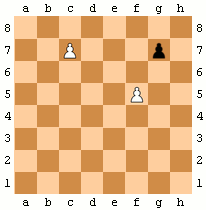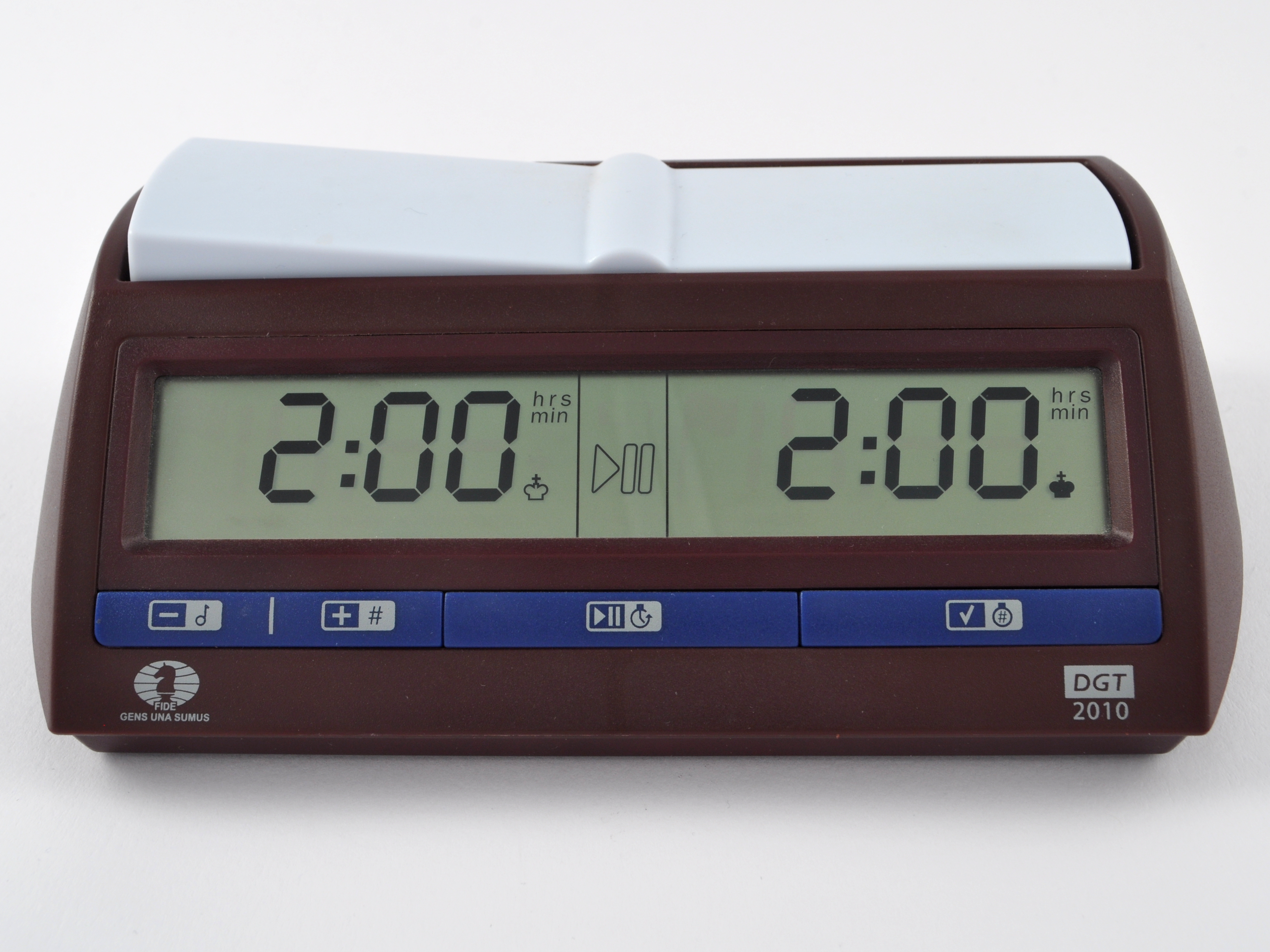|
Elizbar Ubilava
Elizbar Ubilava (born August 27, 1950 in Tbilisi) is a Spanish chess Grandmaster (1988) of Georgian origin. He is FIDE Senior Trainer (2004) and worked with Viswanathan Anand for nine years between 1994 and 2005. He achieved his highest Elo rating of 2561 in January 1999. Chess career Ubilava won the Georgian Chess Championship in 1974 and 1986 and played for Georgia in the 1992 Chess Olympiad. His other successful performances include 1st at Trencianske Teplice 1985, 1st at Eforie Nord 1988, =1st at Tbilisi 1988, 1st at Benasque 2001, 3rd at Elgoibar 2003, =2nd at La Roda 2005, =1st at Benasque 2005 and =1st at Almeria 2008. He participated in the USSR Chess Championship The USSR Chess Championship was played from 1921 to 1991. Organized by the USSR Chess Federation, it was the strongest national chess championship ever held, with eight world chess champions and four world championship finalists among its winner ... of 1967 making him one of the youngest participants at ... [...More Info...] [...Related Items...] OR: [Wikipedia] [Google] [Baidu] |
Georgia (country)
Georgia (, ; ) is a transcontinental country at the intersection of Eastern Europe and Western Asia. It is part of the Caucasus region, bounded by the Black Sea to the west, by Russia to the north and northeast, by Turkey to the southwest, by Armenia to the south, and by Azerbaijan to the southeast. The country covers an area of , and has a population of 3.7 million people. Tbilisi is its capital as well as its largest city, home to roughly a third of the Georgian population. During the classical era, several independent kingdoms became established in what is now Georgia, such as Colchis and Iberia. In the early 4th century, ethnic Georgians officially adopted Christianity, which contributed to the spiritual and political unification of the early Georgian states. In the Middle Ages, the unified Kingdom of Georgia emerged and reached its Golden Age during the reign of King David IV and Queen Tamar in the 12th and early 13th centuries. Thereafter, the kingdom decl ... [...More Info...] [...Related Items...] OR: [Wikipedia] [Google] [Baidu] |
Elgoibar
Elgoibar ( es, Elgóibar) is an industrial town located in the province of Gipuzkoa, in the Autonomous Community of the Basque Country, northern Spain. Located in a valley, it is traversed by the Deba river. Elgoibar is nicknamed the "capital city of the Machine tool". Originally the town was called Villamayor de Marquina, but it had been founded in a place called before Elgoibar field. The town came to be known by this name a few centuries of its foundation. Until the mid-15th century it appears in the documentation as Villamayor de Marquina, but in the statutes of the Brotherhood of Gipuzkoa of 1457 and 1463 years appears with the Elgoibar name and it has prevailed until today. Elgoibar name has been used in Spanish and in Basque in order to refer to the small town. The only difference is that in Spanish the name Elgoibar has an accent mark above its "o". Elgoibar etymologically comes from the Basque language and is possibly composed of the word ''elge'' (meaning "field", usual ... [...More Info...] [...Related Items...] OR: [Wikipedia] [Google] [Baidu] |
Sportspeople From Tbilisi
An athlete (also sportsman or sportswoman) is a person who competes in one or more sports that involve physical strength, speed, or endurance. Athletes may be professionals or amateurs. Most professional athletes have particularly well-developed physiques obtained by extensive physical training and strict exercise accompanied by a strict dietary regimen. Definitions The word "athlete" is a romanization of the el, άθλητὴς, ''athlētēs'', one who participates in a contest; from ἄθλος, ''áthlos'' or ἄθλον, ''áthlon'', a contest or feat. The primary definition of "sportsman" according to Webster's ''Third Unabridged Dictionary'' (1960) is, "a person who is active in sports: as (a): one who engages in the sports of the field and especially in hunting or fishing." Physiology Athletes involved in isotonic exercises have an increased mean left ventricular end-diastolic volume and are less likely to be depressed. Due to their strenuous physical activities, ... [...More Info...] [...Related Items...] OR: [Wikipedia] [Google] [Baidu] |
Chess Players From Georgia (country)
Chess is a board game for two players, called White and Black, each controlling an army of chess pieces in their color, with the objective to checkmate the opponent's king. It is sometimes called international chess or Western chess to distinguish it from related games, such as xiangqi (Chinese chess) and shogi (Japanese chess). The recorded history of chess goes back at least to the emergence of a similar game, chaturanga, in seventh-century India. The rules of chess as we know them today emerged in Europe at the end of the 15th century, with standardization and universal acceptance by the end of the 19th century. Today, chess is one of the world's most popular games, played by millions of people worldwide. Chess is an abstract strategy game that involves no hidden information and no use of dice or cards. It is played on a chessboard with 64 squares arranged in an eight-by-eight grid. At the start, each player controls sixteen pieces: one king, one queen, two rooks, two bi ... [...More Info...] [...Related Items...] OR: [Wikipedia] [Google] [Baidu] |
Chess Olympiad Competitors
Chess is a board game for two players, called White and Black, each controlling an army of chess pieces in their color, with the objective to checkmate the opponent's king. It is sometimes called international chess or Western chess to distinguish it from related games, such as xiangqi (Chinese chess) and shogi (Japanese chess). The recorded history of chess goes back at least to the emergence of a similar game, chaturanga, in seventh-century India. The rules of chess as we know them today emerged in Europe at the end of the 15th century, with standardization and universal acceptance by the end of the 19th century. Today, chess is one of the world's most popular games, played by millions of people worldwide. Chess is an abstract strategy game that involves no hidden information and no use of dice or cards. It is played on a chessboard with 64 squares arranged in an eight-by-eight grid. At the start, each player controls sixteen pieces: one king, one queen, two rooks, t ... [...More Info...] [...Related Items...] OR: [Wikipedia] [Google] [Baidu] |
Chess Grandmasters
Chess is a board game for two players, called White and Black in chess, White and Black, each controlling an army of chess pieces in their color, with the objective to checkmate the opponent's King (chess), king. It is sometimes called international chess or Western chess to distinguish it from chess variant, related games, such as xiangqi (Chinese chess) and shogi (Japanese chess). The recorded history of chess goes back at least to the emergence of a similar game, chaturanga, in seventh-century History of India, India. The rules of chess as we know them today emerged in Europe at the end of the 15th century, with standardization and universal acceptance by the end of the 19th century. Today, chess is one of the world's most popular games, played by millions of people worldwide. Chess is an abstract strategy game that involves Perfect information, no hidden information and no use of dice or cards. It is played on a chessboard with 64 squares arranged in an eight-by-eight grid. ... [...More Info...] [...Related Items...] OR: [Wikipedia] [Google] [Baidu] |
Chess Coaches
Chess is a board game for two players, called White and Black, each controlling an army of chess pieces in their color, with the objective to checkmate the opponent's king. It is sometimes called international chess or Western chess to distinguish it from related games, such as xiangqi (Chinese chess) and shogi (Japanese chess). The recorded history of chess goes back at least to the emergence of a similar game, chaturanga, in seventh-century India. The rules of chess as we know them today emerged in Europe at the end of the 15th century, with standardization and universal acceptance by the end of the 19th century. Today, chess is one of the world's most popular games, played by millions of people worldwide. Chess is an abstract strategy game that involves no hidden information and no use of dice or cards. It is played on a chessboard with 64 squares arranged in an eight-by-eight grid. At the start, each player controls sixteen pieces: one king, one queen, two rooks, two bi ... [...More Info...] [...Related Items...] OR: [Wikipedia] [Google] [Baidu] |
Living People
Related categories * :Year of birth missing (living people) / :Year of birth unknown * :Date of birth missing (living people) / :Date of birth unknown * :Place of birth missing (living people) / :Place of birth unknown * :Year of death missing / :Year of death unknown * :Date of death missing / :Date of death unknown * :Place of death missing / :Place of death unknown * :Missing middle or first names See also * :Dead people * :Template:L, which generates this category or death years, and birth year and sort keys. : {{DEFAULTSORT:Living people 21st-century people People by status ... [...More Info...] [...Related Items...] OR: [Wikipedia] [Google] [Baidu] |
1950 Births
Year 195 ( CXCV) was a common year starting on Wednesday (link will display the full calendar) of the Julian calendar. At the time, it was known as the Year of the Consulship of Scrapula and Clemens (or, less frequently, year 948 '' Ab urbe condita''). The denomination 195 for this year has been used since the early medieval period, when the Anno Domini calendar era became the prevalent method in Europe for naming years. Events By place Roman Empire * Emperor Septimius Severus has the Roman Senate deify the previous emperor Commodus, in an attempt to gain favor with the family of Marcus Aurelius. * King Vologases V and other eastern princes support the claims of Pescennius Niger. The Roman province of Mesopotamia rises in revolt with Parthian support. Severus marches to Mesopotamia to battle the Parthians. * The Roman province of Syria is divided and the role of Antioch is diminished. The Romans annexed the Syrian cities of Edessa and Nisibis. Severus re-establ ... [...More Info...] [...Related Items...] OR: [Wikipedia] [Google] [Baidu] |
USSR Chess Championship
The USSR Chess Championship was played from 1921 to 1991. Organized by the USSR Chess Federation, it was the strongest national chess championship ever held, with eight world chess champions and four world championship finalists among its winners. It was held as a round-robin tournament with the exception of the 35th and 58th championships, which were of the Swiss system. Most wins *Six titles: Mikhail Botvinnik, Mikhail Tal *Four titles: Tigran Petrosian, Viktor Korchnoi, Alexander Beliavsky *Three titles: Paul Keres, Leonid Stein, Anatoly Karpov List of winners : See also * Women's Soviet Chess Championship * Russian Chess Championship Publications * Mark Taimanov, Bernard Cafferty, Soviet Championships, London, Everyman Chess, 1998 () References Further reading *The Soviet Chess Championship 1920-1991 [...More Info...] [...Related Items...] OR: [Wikipedia] [Google] [Baidu] |
La Roda
La Roda is a small city and municipality located in the Province of Albacete in the autonomous community of Castile-La Mancha in Spain. Description The town has a population of around 16,500 people. It is an important industrial town. Its most famous building is the church which dates from the 15th century. Its main culinary speciality are the Miguelitos. Tennis player Guillermo García López hails and David Castro triathlon runner from La Roda. See also *Church of El Salvador o de la Transfiguración The Church of El Salvador o de la Transfiguración (Spanish: ''Iglesia de El Salvador o de la Transfiguración'') is a church that is situated in La Roda, Spain. In 1981 it was declared ''Bien de Interés Cultural''. The church was constructed mo ... References Municipalities of the Province of Albacete {{Albacete-geo-stub ... [...More Info...] [...Related Items...] OR: [Wikipedia] [Google] [Baidu] |



